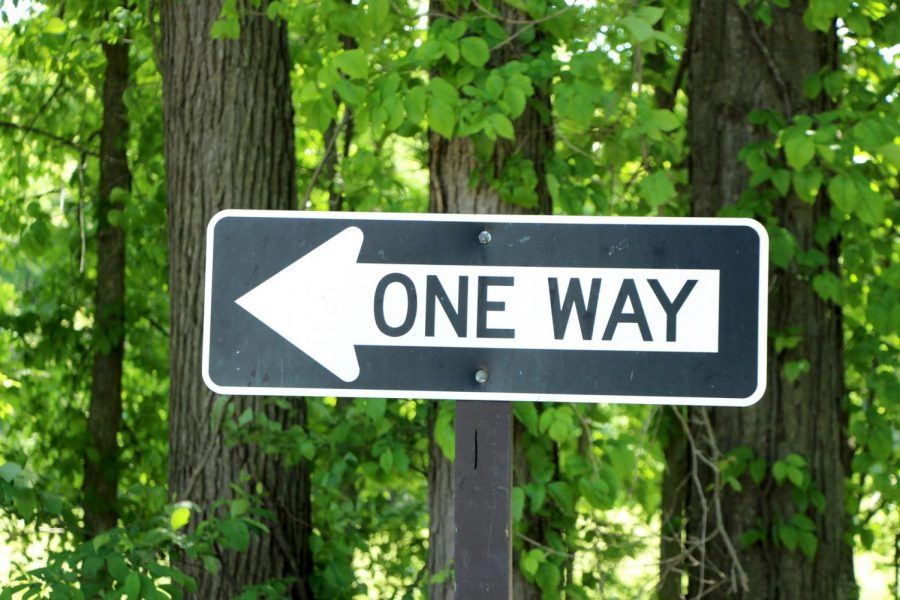The Problem with Punishment
From our earliest years, we are taught that actions have consequences. It’s a simple idea, and it makes sense, particularly to a growing mind still learning the way the world works. Good deeds are rewarded, and bad deeds result in punishment. It provides both a motivation and a basic framework for morality.
I lived most of my life with this concept planted firmly in my subconscious, at a level so deep I could neither recognize nor question it. It was more than part of my moral compass; it was fact. If you did something wrong, you were punished.
It’s not uncommon to hear debates over the fairness of the punishment or the severity of the crime, but rarely does anyone discuss the underlying societal assumption. Until recently, I didn’t realize that was a problem.
However, as I began to dig deeper into the issues to which this idea applies — criminal justice in particular — I found myself asking a question: How, exactly, does punishment help society? And, as I learned more, I realized something: it doesn’t.
After all, that’s not really the point. We punish those who do wrong not because it’s constructive, but because we have decided it is our moral responsibility to do so.
That’s not to say punishment is never the practical approach or that it’s never helpful. If misdeeds went without consequences, civilization would fall apart. It’s just that punishment and pragmatism don’t always overlap.
Our recidivism rate is scary high — 49.3% according to a 2016 study by the United States Sentencing Commission (USSC). In other words, a whopping near-50% of former prisoners are released from prison only to return to a life of crime.
A few years ago, I watched a 60 Minutes piece on the criminal justice systems of Europe. It was enlightening. Very few European nations have life sentences, let alone capital punishment. Furthermore, their prisons are almost completely unrecognizable.
Take Norway, for example. If not for the fences marking the perimeters of its prisons, you’d be forgiven for thinking they were apartment buildings or housing projects. Prisoners are often allowed to wear their own clothes (rather than uniforms), roam the complex, play catch, and live a largely normal — but limited — life.
I balked when I heard this for the first time. I thought, What’s the point of prison if criminals are living comfortably, not hurting for doing wrong? Over time, though, I came to realize the implications of that initial question.
We Americans are so focused on the ruthless delivery of “justice,” of punishment, that we tend to forget about what comes next. It’s ironic, really; we don’t consider the consequences of our appetite for consequences.
Punishment has its place; I don’t deny that. Murder, domestic abuse, rape — these are intentional, despicable actions for which there is no excuse. Many of those who commit such crimes probably belong behind bars, as far away from freedom as possible.
But again, the logistical realities return to chip away at that ideal scenario. It’s unlikely that the majority of rapists and murderers will stay locked up for life or be executed. In many cases, their return to society is unavoidable. Do you want them to come out even more violent, psychotic, and mentally unstable than they were going in?
Then there’s the issue of substance abuse, which should never really be treated as a crime in the first place. No, it’s not a great idea to do drugs or chug alcohol day and night, but those are really the only mistakes for which addicts and alcoholics are directly responsible. In some cases (peer pressure, etc.), even that’s not totally true.
After that first misstep, that single misstep, it’s really not their fault. Addiction reworks the brain on a chemical level. From where I’m standing, addicts and alcoholics are victims, not criminals. How on Earth can the notoriously violent, traumatic American prison system be depended on to treat those illnesses rather than make them worse?
The big, overarching distinction is this: Germany, Scandinavia, much of Europe — they’re focused on the end goal. Their justice systems treat inmates humanely because their purpose is to reduce crime.
They know creating an atmosphere of harrowing mental (and often physical) trauma will not make inmates more stable, respectable citizens by the time they’re up for parole.
The U.S., on the other hand, gives out punishment for the sake of punishment. Considering our justice system perpetuates so many other major problems in American society (institutional racism and social immobility in particular), that needs to change.
For this and more great articles by columnist Duncan O. Glew, visit his blog, State of the Glewnion: A Political Journal by Duncan Glew.

After writing for The Banner as a junior, Duncan Glew '19 is excited to be co-managing The Banner this year with fellow senior Hannah Triester. Outside...



Ben Feldman • Nov 27, 2017 at 10:04 pm
The goal of retribution is rehabilitation. Any reason other than that is illegitimate and petty. However, that doesn’t mean that punishment is not always for the sake of rehabilitation. My most common thought when reading this article (besides, ‘my, this is well-written!’) was that retribution is an excellent deterrent against crime. The drug rate will skyrocket if the populous believes that the government condones drug use, which leads to more addiction.
I see retribution as a means to rehabilitate anyone who can be rehabilitated (require therapy, treatment, etc.) and solely as a means to keep the citizen out of the public when the person cannot enter society again functionally. The lines are blurred, granted.
Any functioning society requires retribution for wrongdoing to deter crime, but should explicitly be a means to achieve rehabilitation.